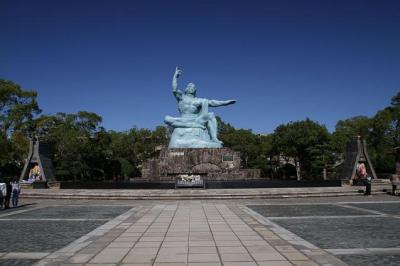
Gaza at issue in Nagasaki commemoration

The US ambassador to Japan did not attend this year's official commemoration of the atomic bombing of Nagasaki Aug. 9 in protest of the city's failure to invite Israel. Ambassador Rahm Emanuel said the event had been "politicized" by Nagasaki's decision to exclude the Jewish state. The embassy said Emanuel would honor the victims of the Nagasaki bombing at a ceremony at a Buddhist temple in Tokyo, and that a lower-ranking US official would attend the Nagasaki event. Five other G7 countries and the EU likewise said in a joint letter beforehand that they would send lower-ranked envoys instead of ambassadors to the ceremony. The letter said the exclusion "would result in placing Israel on the same level as countries such as Russia and Belarus," which were not invited to the ceremony for a third consecutive year. But Nagasaki Mayor Shiro Suzuki said his decision was unchanged.
The municipal government in Hiroshima refused to pay heed to public calls to exclude Israel over the Gaza bombardment, and invited Israeli officials to its event as usual. Russia and Belarus were excluded from both commemorations.
The US dropped an atomic bomb on Hiroshima on Aug. 6 1945, killing 140,000 people and destroying the city. A second atomic bomb dropped three days later on Nagasaki killed 70,000 people. (MEM, The Guardian, France24, Asahi Shimbun)
The death toll in Gaza after 10 months of bombardment is now approaching 40,000 according to the Strip's health authorities, although there is much contestation about the actual figure. (AFP)
The monthly sit-in by atomic bomb survivors and their supporters in the Nagasaki Peace Park, calling for the abolition of nuclear weapons, has been gaining urgency in recent months as the world situation escalates. The sit-ins are held on the ninth day of each month except August, when the official commemoration is held. The survivors, or hibakusha, have been holding the monthly event since March 1979, when it was first organized to protest a Nagasaki port call by Japan's first nuclear-powered ship, the Mutsu, which had suffered a radiation leak in 1974.
At the 500th sit-in, held on June 9 and attended by hundreds, Koichi Kawano, 84, chairman of the Hibakusha Liaison Council of the Nagasaki Prefectural Peace Movement Center, told the crowd: "Humanity will perish unless nuclear weapons are gotten rid of." (Kyodo, Japan Times)
At the NATO summit held in Washington DC in July, marking the 75 anniversary of the founding of the alliance, it was announced that intermediate-range US Cruise missiles are to be deployed periodically in Germany starting in 2026, for the first time since the Cold War. Russia immediately responded that it would "counter-deploy" its own intermediate-range missiles within reach of those missiles. US Cruise missiles were withdrawn from Europe after the Intermediate Nuclear Forces (INF) Treaty of 1987, which the Trump administration formally abandoned in 2019. (BBC News, NYT)

